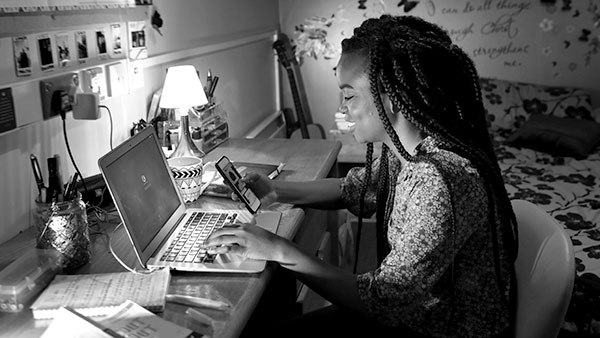Here is Michael Gove’s reply to my July Questions. As I said yesterday, I am very grateful to him for finding the time. Instead of giving my response to his response today – which would make an already long post even longer – I’ll wait until tomorrow, by which time I hope also to be able to draw on comments from other readers.
1. Curriculum content should contain the classical canon of history, literature and scientific knowledge and we should pull back from seeking to make content more relevant to the contemporary concerns and lives of young people. Young people should be discouraged from pursuing newer or non traditional subjects like media studies, which are not seen as credible by the best universities.
MG: I know what you’re driving at but I think the distinction you draw, the “dividing line” if you like, is too stark.
I have nothing against new programmes of study per se. I certainly have no wish to dissuade any one who wishes to pursue a course in media studies if that is their whole heart’s desire. And I certainly have no bias against innovation more broadly. Indeed our reforms are designed to encourage new ways of thinking and doing. In particular, they make it possible for teachers to play a bigger role in shaping schools, the curriculum and teaching.
The current problem with subjects like media studies relates to the way our league tables work. They encourage schools to push a subject which, currently, actually limits opportunities.
Irrespective of my views, it’s a fact that some of our best universities consider media studies to be a less rigorous preparation for higher education than other courses. Students who take it up limit their capacity to choose freely between universities. Its a simple truth that a pass in physics or further maths opens more doors.
But some schools still steer students towards subjects such as media studies because they know its easier to secure a pass. That easier pass will boost their league table ranking. It is no accident that the huge rise in students taking media studies GCSE has occurred in state schools, where league tables matter so much, while in private schools, where the interests and demands of students and their families currently hold more sway, there has been no similar rush to embrace the subject.
But let me stress again, my aim is to widen the scope of choice available to the next generation. I would like students to choose the course of study which most inspires them, and best prepares them for the future, by widening the range of opportunities available to them.
In that context, I am indebted to the work of the Scottish social democratic thinker Lindsay Paterson. If you’ll allow me to quote from his essay “The Renewal of Social Democratic Educational Thought in Scotland” he puts better than I ever could what I think is the right approach to take…
“The anger of radical campaigners against a divided secondary education was because it denied working class people access to a general education; they shared the aim of extending access to the best that has been thought and said… the democratic intellect was to be as much about the intellect as the access to it; and yet policy since the 1980s has rather neglected the importance of enabling students to engage properly with intellectual difficulty and intellectual worth. Instead policy has approached the problem of motivation by diluting seriousness, by fragmenting difficult programmes of study into modularised segments and by trying to divert students into intellectually undemanding courses of ostensible vocational relevance.”
2. The curriculum should be delivered though traditional subject disciplines and not through approaches emphasising cross cutting themes and competencies, like for example, the RSA’s Opening Minds.
MG: Again, my view is that choice is what matters, and more schools should have more freedom to pursue the curriculum path which they believe will enhance the opportunities available to their students.
But, also again I would quote Lindsay Paterson:
“Programmes of general liberal education are better at preparing people for life as decent citizens than any other kinds of learning. That was something which old radicals understood well. You could make citizens for the new era of mass democracy by equipping them with the cultural capacities which the aristocratic or bourgeois ruling classes had acquired through their schooling. Citizenship should permeate many types of study – literature, history, geography, politics, science, religion.”
It is instructive that many of those schools with the best record in raising achievement for children from poorer backgrounds – from Mossbourne Community Academy to the KIPP schools in the US follow a traditional curriculum which provides the sort of general liberal education Lindsay admires.
3. (Something I heard emphasised by your number two Nick Gibb), the practice of the best schools shows traditional chalk and talk forms of pedagogy are superior to practical, project based, forms of learning.
MG: It is certainly the case that the tried and tested methods of whole class teaching, followed up by personal tuition for those who need it, are highly effective.
But I am a strong believer in practical learning. I would like to see a bigger place for practical experimental work in science teaching. I believe practical problem solving as part of outdoor learning, whether in geography or sport, is hugely important. And I very strongly believe we need to improve practical education for those who do not wish to pursue academic learning beyond sixteen with much more rigorous and robust vocational qualifications.
4. Schools should focus much more on the core activity of imparting knowledge. Children’s wider development is best enhanced through extra curricular activities such as schools clubs and societies but not through ‘teaching’ life skills or well-being.
Again, I fear the division you’re drawing up may be misleading. I certainly believe that the most important task a school has is giving children the knowledge they need to make the widest possible range of choices about the future and play the fullest possible part in our democracy. To that end the sort of liberal education Lindsay Paterson talks about is the right course to follow.
But I certainly think good schools will also want to impart, complementary, practical knowledge, whether its cooking, sex and relationships education or basic questions of good manners and consideration for others. I’m not sure I like the term “life skills” but the sort of areas I’ve just mentioned would, I think, certainly come under that umbrella…
5. Schools should be institutions that are primarily or even exclusively about learning and should not be required to engage in the wider delivery of children’s or community services.
MG: Schools should be about learning, absolutely. If schools wish to offer other services, wonderful. If other services support learning, fantastic. But schools are places for teaching and learning.
6. Rather than blurring the divide between the academic and vocational learning we should assert it, with, for example, the 14-19 Diplomas restricted to vocational content.
MG: The Diplomas have had a pretty poor reception so far, but I am interested in seeing how we can make the best of them.
More broadly, I certainly do not want a rigid divide between the academic and vocational. I certainly want to see more and more students pursuing academic courses for longer, but I also anticipate that many students, as well as acquiring a basic grounding in an academic core will also pursue genuinely rigorous practical qualifications in fields employers value.
7. Implicitly, strategies to widen participation in learning should not include developing forms of content and levels of assessment which enable more children to succeed: More should rise to the bar, the bar shouldn’t be moved to allow more to jump it.
MG: The question contains a logical flaw. More children should certainly be helped to succeed. But not by lowering the bar. Instead we should help them to escape the constraints of disadvantage which may have held them back in the past, so they can aim higher.
Related articles
-
-
How young people are shaping social change despite Covid-19 challenges
Aidan Daly
Despite the pandemic, school pupils are demonstrating creative confidence and a commitment to making their communities a better place.
-
Is the lockdown helping us realise the value of art and creativity?
Georgina Chatfield
Anyone in education knows we so often have to make the case for the value of arts and creative activities. The lockdown gives us a chance to recognise their value – now and moving forward.




Be the first to write a comment
Comments
Please login to post a comment or reply
Don't have an account? Click here to register.